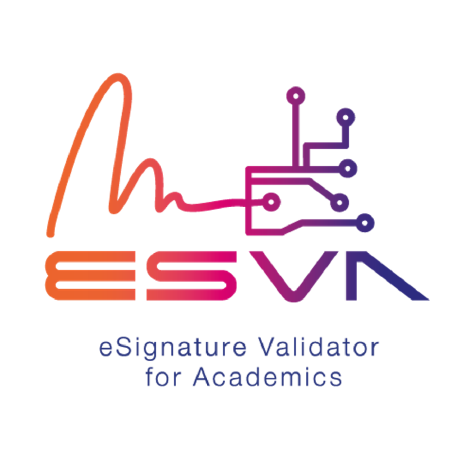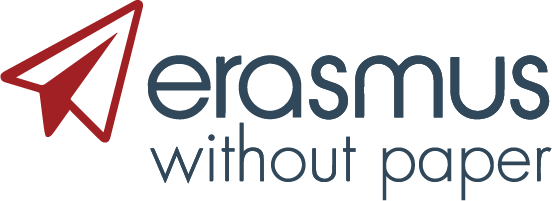About
What is the Open Source University Alliance?
The Open Source University Alliance Initiative is an initiative of the Erasmus Without Paper project (EWP) that aims to let all Higher Education Institutions (HEIs) in Europe face the challenges of the information society, in an efficient and qualitative way. By creating an open repository of source code and software, the higher education community will have full access to the necessary tools to meet the demands that they are posed with today. The core of the Open Source University Alliance will be composed by HEIs willing to lead by example with regards to sharing open source solutions developed by their respective teams.
For HEIs that are in the need of developing IT tools that can support the management of, for example, their student mobility, they are forced to do it largely on their own. Either by developing something new from scratch or by updating the software they have previously developed themselves. This process is not only slow and inefficient, but also expensive. An alternative to working individually is for the higher education community to share the source code of their applications, eliminating redundancy. By doing so, the HEIs would both dramatically accelerate their ability to maintain state of the art systems and enhance the efficiency and cost management for their digital systems. The advantages would also extend beyond this, and promote real collaboration and exchange of expertise among IT teams, which in turn would lead to higher security and quality standards.
From 2019 to 2021, the vast majority of European HEIs will be looking to connect their student information systems (SIS) to the EWP Network. The single largest obstacle to enacting the change of paradigm EWP will bring about is the great commitment of resources by all HEIs that need to update their in-house-developed SIS. Indeed, the digital exchange of student data that comes with the EWP will in almost all cases require an overhaul of the original SIS. While considerable attention is being paid to making the connection to EWP as simple and straightforward as possible there could not be a better moment to create the conditions for HEIs to embrace two changes of paradigm at once and join the open source software movement.
With this in view, the EWP proposes a new deliverable consisting of a repository of open source code and software. Such a resource is meant to let any developer access a catalogue of modules developed by peers which can be adapted to the needs of their own HEI – and once again shared with the community. To render the repository useful it needs to have a critical mass of content at its launch, in December 2018, and guaranteeing this is the mission of the Open Source University Alliance.
Who runs the initiative?
The Open Source University Alliance is an initiative created by the EWP project. The EWP project proposed is a response to the current needs of the information society, more specifically a large number of potential end-beneficiaries ranging from students, institutional Erasmus co-ordinators, higher education institutions at large, national agencies, or even the European Commission. The EWP network is the first attempt to standardize student data transfer on a European-wide scale. The establishment of the Open Source University Alliance is a vital step in the creation of this network.
In order to monitor the progress of the initiative a steering committee has been set it. It consists of:
- European University Foundation (EUF)
- Coimbra Group
- SGroup
- Network of Universities from the Capitals of Europe (UNICA)
- Young European Research Universities (YERUN)
- Compostela Group
- European Consortium of Innovative Universities (ECIU)
- Groningen Declaration Network (GDN)
But the foundation of the Open Source University Alliance are the individual HEIs that show their support for the initiative by donating code to the repository. It is their contributions that makes the Open Source University Alliance possible. It is therefore crucial that as many HEIs sign up and show support for the initiative as possible. By signing up, you will contribute to the creation of an open source of tools that will aid all the thousands of HEIs in Europe. Their contribution will then help your HEI efficiently realize any digital development necessary.
Repository
The Open Source Repository. See how to contribute.
EUROPEAN UNIVERSITY FOUNDATION
 POWER slimPHP middleware
POWER slimPHP middleware
Simple middleware in Slim PHP for authenticating requests to the POWER platform
EUROPEAN UNIVERSITY FOUNDATION
 POWER Node.js middleware
POWER Node.js middleware
Simple middleware in Node.js for authenticating requests to the POWER platform
EUROPEAN UNIVERSITY FOUNDATION
 POWER - React Embeddable frontend application
POWER - React Embeddable frontend application
React Application used by institutions to be embedded into their websites. It displays a list of public Placement Opportunities and institution-specific Placement Opportunities
UNIVERSITY OF PORTO
 ESVA - eSignature Validation for Academics
ESVA - eSignature Validation for Academics
The eSignature Validation software package will analyse if a certain e-signature is valid, qualified or not, and collect any existing attributes that may be available to collect.
Universidad de Málaga
 European Student Identifier Identity Management System
European Student Identifier Identity Management System
A system for small Higher Education Institutions to manage electronic identities for participating en Erasmus+ mobilities through MyAdacemicId services connected to the EduGAIN identity federation.
European University Foundation
 EU funding blocks
EU funding blocks
Drupal module providing EU funding banner and disclaimer blocks
See the Erasmus+: Visual identity and logos for more information.
EDSSI
 Erasmus Without Paper repository
Erasmus Without Paper repository
The updated repository of the Erasmus Without Paper Network
University of Porto
 EWP+ Dashboard SSP Module
EWP+ Dashboard SSP Module
The Student Service Providers (SSP) module on the Dashboard invites SSPs to the Dashboard and makes it possible to share their data with the partners and students of the HEI in a safe and comprehensive way in the context of the Erasmus+ programme.
Alma Mater Studiorum Università di Bologna
 EWP IIAs Conditions Hash Calculator
EWP IIAs Conditions Hash Calculator
A Java implementation of the procedure to generate the conditions hashes of IIAs, according to the EWP specs.
Humboldt-Universität zu Berlin
University of Limerick
Bodhi Linux Media
Bodhi Linux Media is a free and open source distro that comes with a curated list of open source software for digital artists working with audio, video, games, graphics, animation, physical computing etc.
Ghent University
 Online Quality Assessment Tool for International Cooperation
Online Quality Assessment Tool for International Cooperation
The eQuATIC tool addresses the growing need for quality in international cooperation.
It exposes and visualizes strengths and weaknesses, supporting policy makers and practitioners in evaluating international cooperation.
University of Münster
ExternalData-Package for OTRS
Package for OTRS to access any external data and link it to tickets.
University of Münster
Multiple ticket export for OTRS
The "Multiple ticket export"-Plugin provides the possibility to print all tickets of a given queue into PDF documents.
University of Münster
Queueadmin-Plugin for OTRS
Multi-client capability for editing auto response templates and mail signatures in OTRS.
University of Alcalá
Course Catalog API
This API is meant to load the course catalog of Higher Education Institutions (HEI) and to offer it for search and validation purposes
Alma Mater Studiorum Università di Bologna
 AlmaRM Model
AlmaRM Model
AlmaRM Model is a Java representation of the model on which AlmaRM, the application developed by the University of Bologna to manage all mobility programmes, is built.
Aristotle University of Thessaloniki
 Various projects covering university IT Center needs
Various projects covering university IT Center needs
On our github repo you will find a number of projects maintained as open-source. Three of them might be of special interest to the european academic community:
- class.auth.gr, a modern scheduling/calendaring interface for university classes and venues, with departmental, personal and venue calendars, based on course scheduling of classes, student enrollment in the student information system and instructor requested cancellations/reservations. Implementation in AngularJS for front-end, backend API specification.
- limesurvey authenticated surveys, a plugin to enable SAML SSO login for the open-source limesurvey platform, enables authenticated access to editors and participants in university sponsored surveys, a missing feature to enable university community surveys, Implementation in PHP with session support.
- ewp interconnect, an initial effort to build an Erasmus Without Paper university node interfacing with a local mobility system. Implementation in javascript on node.js.
Erasmus Without Paper
 Reference connector for EWP
Reference connector for EWP
This reference connector demonstrates how a connector can be implemented in Java. It has a built-in database to save persistent information.
It is an official tool shared by the Erasmus Without Paper project.
University of Porto
Guidelines
We all care about quality. In order to easily and efficiently share a code repository with other Institutions, it is important to follow the common best practices. Please look for the following guidelines:
GitHub
From setup to optimization, learn how to use GitHub to get the job done:
Coding Style Guides
Style Guides are for consistent code among every coders. Adopting standard style means ranking the importance of code clarity and community conventions higher than personal style. For programmers, it provides benefits in: correctness, readability, efficiency and happiness.
Please check the Coding Style Guides for the main languages.
Contribute
How do we contribute?
Contributing to the Open Source University Alliance is very easy. You contribute by filling out the form below. This form is both a way for you to show your support for the initiative, share some code repository with other Institutions, and a possibility for us to easily communicate with you.
For the form, we would kindly like to ask your institution to provide us with a contact person, who we can contact for the initiative and the repository. This is preferably someone from the IT-department.


